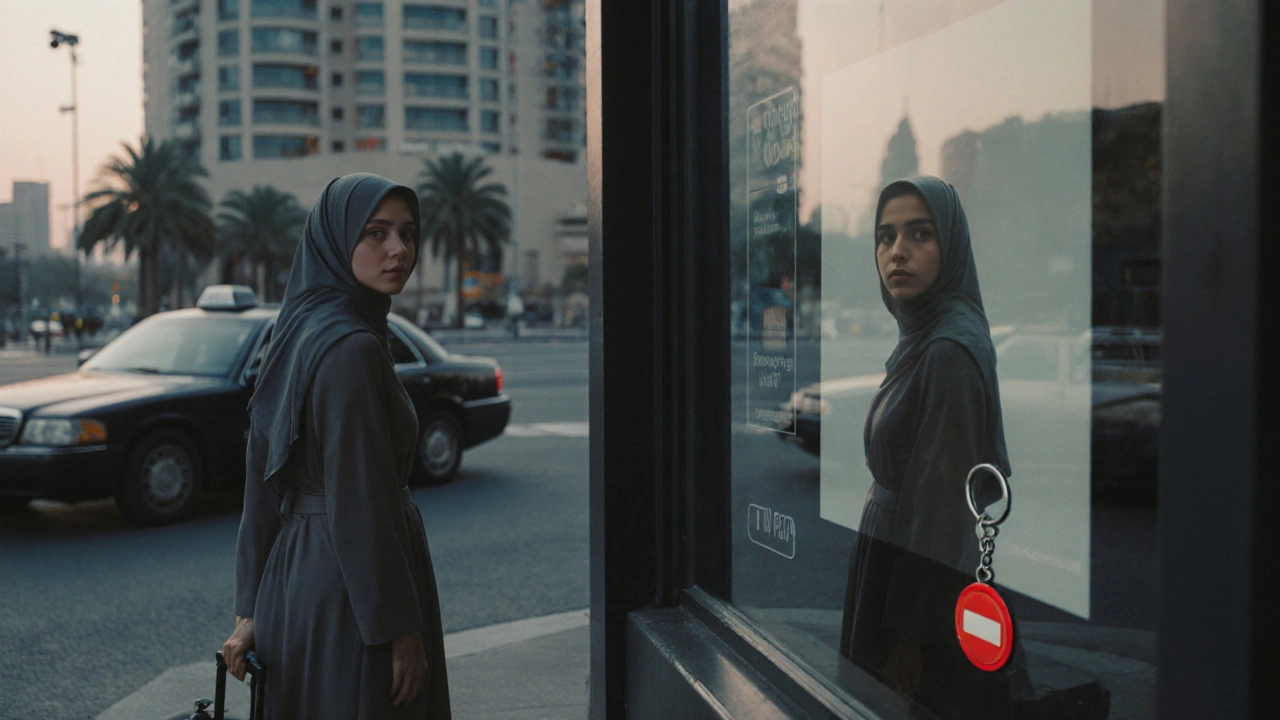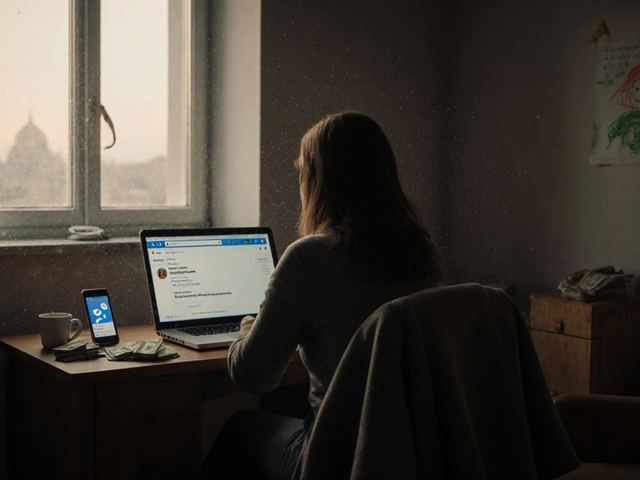Walking through Dubai’s glittering skyline, it’s easy to forget the city has a hidden economy-one that’s lived in by women who aren’t seen in the ads or the luxury malls. These are the women who work in adult services in Dubai: independent escorts, online performers, and private companions. They’re not stereotypes. They’re mothers, students, artists, and expats trying to survive a system that doesn’t officially recognize their work but still depends on it.
What Does Adult Work in Dubai Actually Look Like?
Dubai doesn’t have legal brothels. There’s no official licensing for sex work. But that doesn’t mean it doesn’t exist. It just means it’s underground, quiet, and mostly online. Most women who do this work use platforms like AdultWork.com, private Telegram channels, or Instagram DMs to connect with clients. They don’t advertise on street corners. They don’t work in massage parlors that get raided. They work from apartments, short-term rentals, or even hotel rooms booked under fake names.
One woman, who goes by the name Layla (not her real name), moved to Dubai from Ukraine in 2022. She had a degree in marketing but couldn’t get a work visa without sponsorship. She started offering companionship services through AdultWork.com. "I don’t do anything illegal," she says. "I’m not selling sex. I’m selling time. Conversation. Company. A night where someone doesn’t feel alone." She earns between $2,000 and $4,500 a month. That’s more than most expat office jobs in Dubai pay after taxes and rent.
Why Do Women Choose This Path?
People assume it’s desperation. Sometimes it is. But more often, it’s about control. Dubai’s cost of living is brutal. Rent for a one-bedroom apartment in Jumeirah starts at $3,000 a month. A decent car? $800 minimum. Health insurance? Another $200. For women on a tourist visa or without a sponsor, traditional jobs are off-limits. Teaching English? Requires a degree and a visa. Waitressing? Needs a labor permit. Nanny work? Pays $800 and comes with 16-hour days.
Adult work offers flexibility. You set your own hours. You choose your clients. You decide what services you offer. No boss. No clock-in. No one asking why you’re late because your kid was sick. For single mothers, students paying off loans, or women fleeing abusive relationships, this isn’t a last resort-it’s the only real option.
One woman from Brazil, studying Arabic at Dubai University, started doing private sessions to cover her tuition. She works two nights a week. "I study in the day. I work at night. I pay my own rent. No one gives me money. No one helps me. So I built my own system. It’s not glamorous. But it’s mine."
The Risks Are Real
There’s no legal protection. If a client refuses to pay, you can’t call the police. If you’re assaulted, reporting it could mean deportation-or worse. Many women carry pepper spray. Some have panic buttons linked to friends. Others only meet clients in hotels with 24-hour security. Most avoid meeting alone in residential areas. The fear isn’t just about violence. It’s about being caught.
In 2023, a woman from South Africa was arrested after a client reported her to immigration. She spent three weeks in detention before being deported. Her crime? Working without a visa. Her punishment? A lifetime ban from the UAE. No trial. No lawyer. Just a flight out.
Even online performers aren’t safe. In 2024, a Dubai-based cam model was doxxed by a client. Her real name, passport photo, and home address were posted on a forum. She had to flee the country within 48 hours. She now works from Thailand.

How Women Stay Safe
There’s a quiet network. Women share client names they’ve had bad experiences with. They warn each other about fake profiles. They use encrypted apps like Signal or Telegram. They never give out their real names. They use burner phones. They screen clients with video calls before meeting. They always tell someone where they’re going and when they’ll be back.
Some use third-party verification services. For example, a woman might require a client to pay through a trusted escrow service that holds the money until the session is confirmed complete. Others only accept cryptocurrency-Bitcoin or USDT-to avoid leaving a paper trail.
There’s also a growing number of women who’ve moved entirely online. They run OnlyFans pages, sell custom videos, or offer virtual companionship. One woman from Canada runs a subscription service where clients pay $120 a month for daily voice messages, personalized affirmations, and weekly Zoom calls. She earns $6,000 a month. No travel. No risk. No police.
The Double Standard
Dubai markets itself as a global hub for tourism, business, and luxury. But when it comes to women who sell their time and intimacy, the rules change. Foreign men come to Dubai for business, for parties, for the nightlife. They’re welcomed. They’re treated like VIPs. But the women who serve them? They’re treated like criminals.
There’s no public debate. No policy review. No support system. Just silence. And yet, Dubai’s economy thrives on the invisible labor of women like these. They clean hotel rooms. They cook meals. They drive taxis. And they offer companionship to men who can’t find connection anywhere else.
Ask any expat in Dubai: the city runs on women who aren’t supposed to be here. And yet, when they’re found, they’re punished-not protected.

What Are the Alternatives?
Some women try to leave. They go back home. They find jobs in the Philippines, Romania, or Ukraine. But many can’t afford to. The debt they’ve built up in Dubai-rent, medical bills, legal fees-is too heavy. Others try to transition into legal work. Some become freelance content creators. Others start small businesses: selling handmade jewelry, offering Arabic tutoring, running Instagram shops.
But here’s the truth: there’s no safe, legal, well-paying alternative for most of these women in Dubai. The system doesn’t offer them a ladder. It only gives them a trap.
One woman from Poland, who worked in Dubai for four years, now runs a support group for former sex workers. She helps them get legal advice, find housing, and apply for jobs abroad. "We don’t ask why they did it," she says. "We just help them get out. And if they want to stay? We help them stay safe."
What’s Changing?
There are signs of slow change. In 2024, a group of women in Dubai started an anonymous blog called "Dubai Women’s Voices." They share stories-without names or photos-about their lives, their fears, their hopes. The blog gets thousands of visitors a month. Not from tourists. From other women in the same situation.
Some NGOs based in Abu Dhabi have quietly started offering legal workshops for women on visa status and safety planning. They don’t advertise. They don’t call it "sex work support." They call it "financial independence coaching." But the message is clear: you’re not alone. There are people who understand.
And more women are speaking up. Not on camera. Not in interviews. But in private messages. In encrypted chats. In the quiet corners of the internet. They’re saying: "We’re here. We’re not going away. And we deserve to be treated like humans, not criminals."
Final Thoughts
Dubai’s adult work scene isn’t about glamour. It’s about survival. It’s about women making hard choices in a city that offers them no safety net. They’re not victims. They’re not villains. They’re people trying to build a life where the rules were never meant for them.
If you’re reading this and wondering what you can do-don’t judge. Don’t look away. Don’t assume you know their story. The real question isn’t why they’re here. It’s why the system lets them be here without protection, without rights, without dignity.
Until that changes, their voices will stay quiet. But they won’t disappear.
Is adult work legal in Dubai?
No, adult work is not legal in Dubai. Prostitution, solicitation, and operating brothels are criminal offenses under UAE law. Even consensual adult services between adults can lead to arrest, deportation, or imprisonment if discovered. Most women who work in this space do so without legal protection or official recognition.
How do women find clients in Dubai?
Most women use online platforms like AdultWork.com, private Telegram channels, or Instagram DMs. They avoid public advertising. Many use burner phones, encrypted messaging apps, and fake names. Some require video calls before meeting. Others use escrow services to hold payments until the session is confirmed. The goal is to minimize exposure and avoid attracting police attention.
What are the biggest risks for women doing adult work in Dubai?
The biggest risks are arrest, deportation, violence, and doxxing. Since there’s no legal protection, women can’t report crimes like theft or assault without risking their own arrest. Many clients are anonymous, and some use fake identities. Doxxing-where personal details are leaked online-is common and can force women to flee the country overnight. Financial scams are also frequent, with clients refusing to pay after services are rendered.
Can women switch to legal work after doing adult work in Dubai?
It’s possible, but extremely difficult. A criminal record or deportation history makes it nearly impossible to get a work visa in the UAE or many other countries. Some women transition into online work like OnlyFans, virtual coaching, or freelance content creation. Others return home and start small businesses. But without savings, support networks, or legal documentation, the path out is narrow and often dangerous.
Are there any support groups for women in adult work in Dubai?
There are no official government or NGO-run support groups openly operating in Dubai. However, private, anonymous networks exist-mostly through encrypted messaging apps. A few NGOs based in Abu Dhabi offer discreet legal and safety workshops under the guise of "financial independence coaching." These groups help women understand their rights, avoid scams, and plan safe exits. They don’t advertise and require referrals to join.





